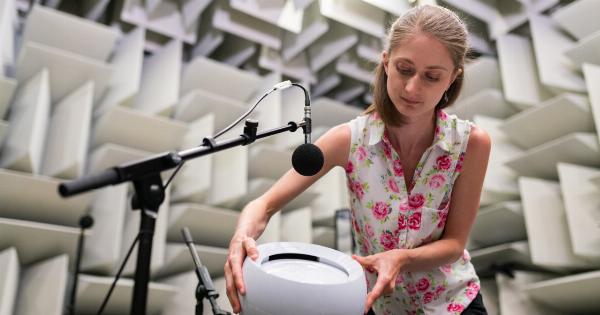Ever wondered why you tend to hear better from your left ear compared to your right ear? It’s not just you. There is scientific evidence that the left ear is better at hearing than the right ear in most circumstances.
However, this doesn’t mean the right ear is less important.
Understanding Hearing Mechanism
To understand why the left ear is better at hearing than the right, it is essential to understand how the human ear functions. The ear has three parts;.
Outer ear
The outer ear consists of the pinna, ear canal, and eardrum. Its primary purpose is to capture sound waves and funnel them into the ear canal.
Middle ear
The middle ear houses the ossicles, which are tiny bones that vibrate when sound waves hit the eardrum. The vibration is then transmitted to the inner ear.
Inner ear
The inner ear consists of the cochlea and the vestibular system. The cochlea converts sound waves into electrical signals that are sent to the brain, while the vestibular system plays a significant role in balance.
The Role of the Left Ear in Hearing
Research has shown that the left ear outperforms the right ear in most circumstances. The primary reason for this is that the left ear connects directly to the right hemisphere of the brain, while the right ear connects to the left hemisphere.
The right hemisphere of the brain is responsible for processing music, emotions, and spatial awareness. It plays a crucial role in identifying sounds such as rhythm and melody in music and environmental sounds like thunderstorms and birds.
These sounds are vital for spatial cognition, which is why people with left-ear dominance are better able to navigate through a space compared to those with right-ear dominance.
In contrast, the left hemisphere of the brain processes language and speech. It focuses on picking up the details of speech sounds, which are contrastive and produce meaning.
Therefore, people with left-ear dominance tend to be better at understanding spoken language.
Additionally, the left ear is better at picking up sounds in noisy environments.
Since the right hemisphere of the brain processes environmental sounds, it can filter out background noise in complex sound environments, making it easier for the individual to focus on the target sound.
The Role of the Right Ear in Hearing
Although the left ear is better at processing sounds in most circumstances, the right ear has unique abilities as well. The right ear is better at distinguishing sounds from different directions.
The reason for this is that the right ear is better at detecting high-frequency sounds, which are essential for identifying sound direction.
Additionally, the right ear is better equipped to handle sudden loud noises. As soon as the brain detects a loud noise, it triggers the stapedius reflex in the middle ear, causing the stapedius muscle to contract and limit the vibration of the ossicles.
The stapedius muscle is located closer to the right ear in most people, making the right ear more efficient in responding to sudden loud noises.
The Importance of Both Ears
It is essential to note that both ears work together to provide spatial awareness and a fuller range of hearing.
Although the left ear is better at processing most sounds, the right ear is better at detecting high-frequency sounds and sudden loud noises. Therefore, both ears working together are crucial for overall hearing ability.
The brain also uses the time difference between when sounds reach both ears to locate the source of the sound. This process is known as binaural hearing and is crucial for spatial awareness.
Conclusion
The left ear is better at processing most sounds, producing a more robust hearing experience. However, the right ear is better at detecting high-frequency sounds and filtering sudden loud noises, making it equally important for hearing ability.
Therefore, it is essential to maintain both ears and protect them from exposure to loud noises to maintain overall hearing quality.






























